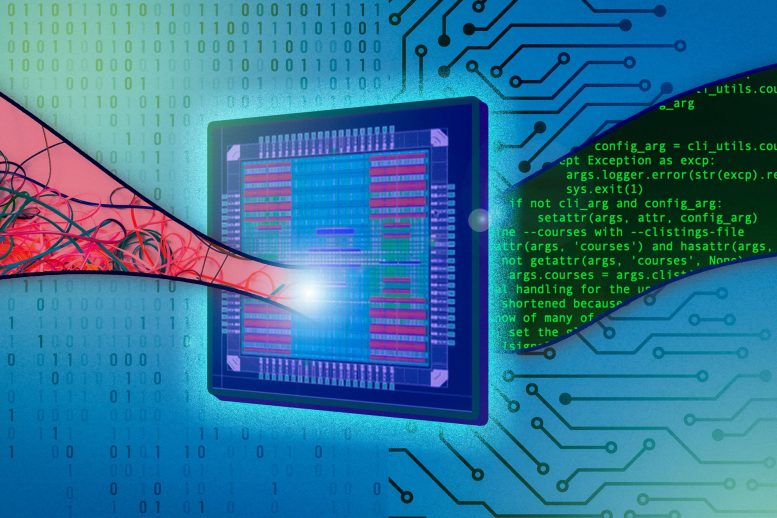
A new silicon chip can decode any error-correcting code through the use of a novel algorithm known as Guessing Random Additive Noise Decoding (GRAND). Credit: Jose-Luis Olivares, MIT, with chip courtesy of the researchers
New chip eliminates the need for specific decoding hardware, could boost efficiency of gaming systems, 5G networks, the internet of things, and more.
Every piece of data that travels over the internet — from paragraphs in an email to 3D graphics in a virtual reality environment — can be altered by the noise it encounters along the way, such as electromagnetic interference from a microwave or Bluetooth device. The data are coded so that when they arrive at their destination, a decoding algorithm can undo the negative effects of that noise and retrieve the original data.
Since the 1950s, most error-correcting codes and decoding algorithms have been designed together. Each code had a structure that corresponded with a particular, highly complex decoding algorithm, which often required the use of dedicated hardware.
Researchers at